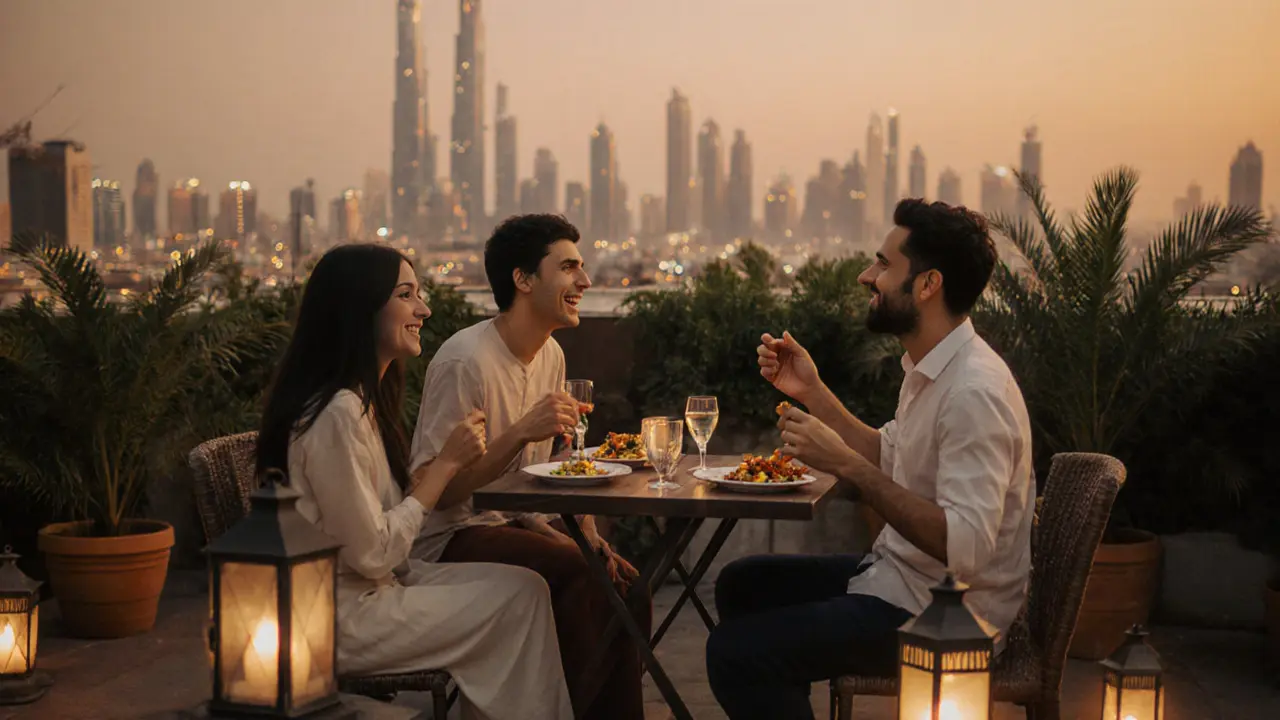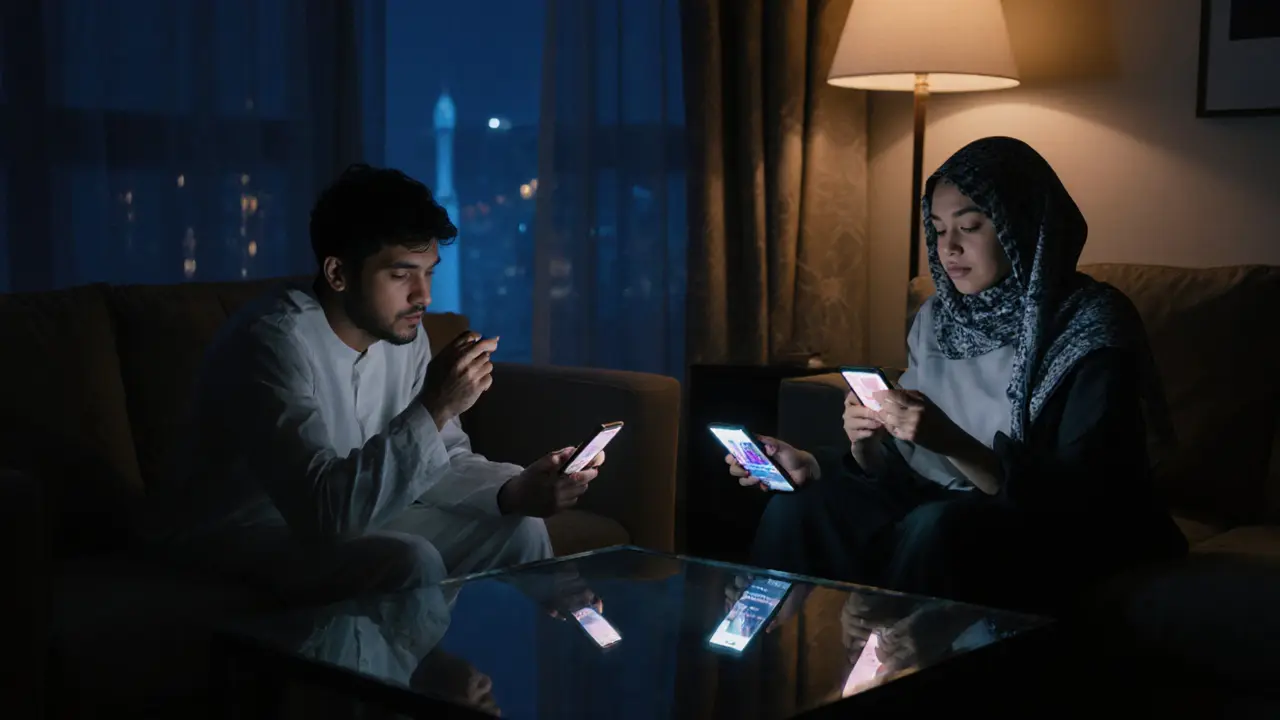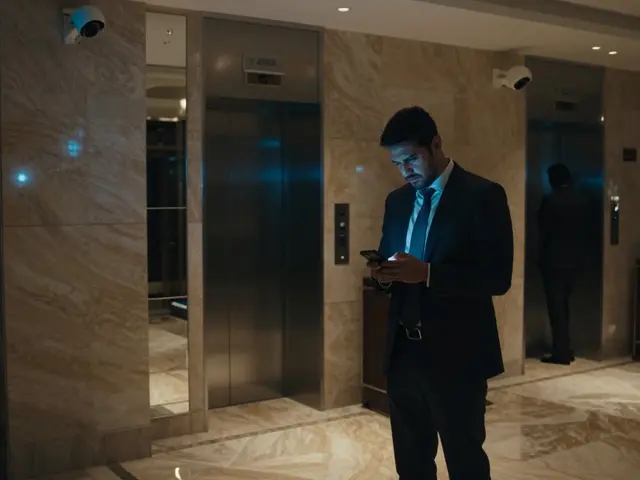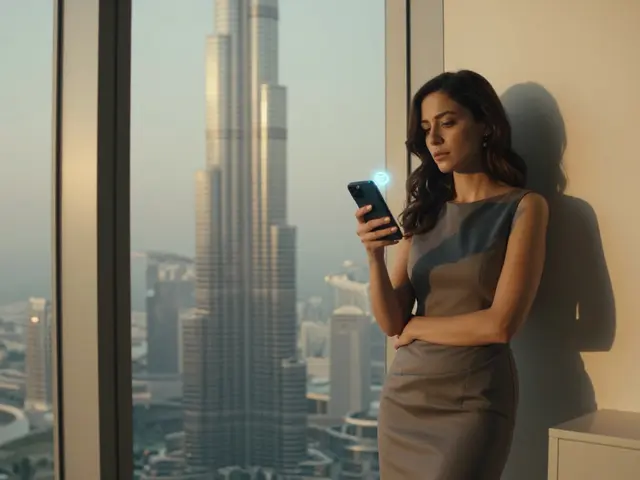For decades, Dubai was seen as a city where public displays of affection were frowned upon, and discussions about sex were strictly private-sometimes even illegal. But today, something quiet but powerful is shifting. Young Emiratis and expats alike are talking more openly about intimacy, consent, and relationships. It’s not about rebellion. It’s about evolution.
What Used to Be
In the 1990s and early 2000s, Dubai’s approach to sex was shaped by conservative religious norms and strict legal codes. Public kissing could lead to fines or deportation. Cohabitation outside marriage was illegal. Even dating in public could attract unwanted attention from authorities. Sex education in schools was minimal, often limited to biological facts without context about emotional health or boundaries.
That didn’t mean people weren’t having sex-it just meant they were doing it behind closed doors. Many expats lived in a double reality: keeping personal lives private while enjoying the city’s nightlife and freedom in other areas. Local Emiratis often married young, with arranged unions still common. Conversations about desire, pleasure, or sexual health were rare, even within families.
The Digital Shift
The real turning point wasn’t a law change-it was access. By 2015, over 95% of Dubai’s population had smartphone penetration. Social media, dating apps, and encrypted messaging platforms gave people new ways to connect. Tinder, Bumble, and even local apps like Muzmatch started gaining traction among Emirati youth. Suddenly, people could explore relationships without being seen in public.
YouTube and Instagram became unexpected classrooms. Channels like "Sexual Health in the Arab World" and "Muslim Couples Talk" grew quickly. A 2023 survey by the Dubai Health Authority found that 68% of Emiratis aged 18-29 had accessed online resources about sexual health in the past year. That’s up from just 22% in 2018.
Legal Changes That Mattered
Dubai didn’t legalize premarital sex-but it did soften enforcement. In 2020, the UAE decriminalized cohabitation for unmarried couples in Dubai and Abu Dhabi. The change didn’t come from activism. It came from economic pressure. With over 80% of the population being expats, the government realized that strict moral laws were driving away skilled workers and entrepreneurs.
Also, in 2022, the UAE introduced new family laws that recognized prenuptial agreements and gave women more control over divorce and custody. These weren’t just legal tweaks-they signaled a cultural shift. Women, especially those in their late 20s and 30s, now have more autonomy in relationships. They’re asking for emotional compatibility, not just family approval.

Sex Education Is Finally Getting Real
Until recently, sex education in Dubai’s public schools was almost nonexistent. Now, starting in 2023, the Ministry of Education rolled out a new curriculum for grades 7-12 that includes topics like consent, healthy relationships, gender identity, and contraception. It’s not perfect-parents can opt out-but it’s a start.
Private schools have gone further. Institutions like GEMS Wellington and Dubai American Academy now offer workshops on emotional intelligence and safe intimacy. One high school counselor in Jumeirah told me, "We used to get one question a year about sex. Now we get three a week-and they’re thoughtful, not awkward."
What’s Still Off-Limits
Don’t mistake openness for freedom. Public indecency is still illegal. Holding hands is tolerated, but kissing in public can still land you in trouble. Pornography remains banned, and sharing explicit content-even between consenting adults-can lead to serious legal consequences.
And while expats have more space to live as they choose, Emirati citizens still face social pressure. A 2024 study by the Dubai Future Foundation found that 57% of Emirati women under 30 felt they couldn’t discuss their sexual needs with their families. The gap between legal tolerance and cultural acceptance is still wide.

Young People Are Leading the Change
The biggest driver of change? Gen Z. Young Emiratis raised on global content, fluent in English and Arabic, and connected to international trends are redefining what’s normal. They’re not rejecting tradition-they’re reshaping it.
One 22-year-old Emirati woman I spoke with said, "My parents married at 19. I want to know who I am before I commit. That’s not rebellion. That’s responsibility." She’s studying psychology and volunteers at a youth counseling center that offers anonymous sexual health chats.
Men are changing too. Online forums like "Dubai Men’s Circle" have over 40,000 members discussing emotional intimacy, mental health, and communication in relationships. For years, masculinity in the Gulf meant silence. Now, it’s starting to mean vulnerability.
What This Means for Visitors
If you’re visiting Dubai, don’t assume things have changed everywhere. Respect local customs. Public affection beyond a handshake is still risky. But if you’re living here, you’re part of a quiet revolution.
Expats who used to hide their relationships now host dinner parties with mixed-couple friends. Couples are choosing to live together before marriage-not because they’re breaking rules, but because they’re building something real. And that’s what matters now: authenticity over appearance.
The Bigger Picture
Dubai isn’t becoming liberal. It’s becoming pragmatic. The government knows that to stay competitive, it must adapt to the values of the people who live here-not just the tourists who pass through.
Sex is no longer just a moral issue. It’s a human one. And in a city built on reinvention, that shift was inevitable.
Is it legal for unmarried couples to live together in Dubai now?
Yes. Since 2020, cohabitation for unmarried couples has been decriminalized in Dubai and Abu Dhabi. While it’s still technically against religious law, authorities no longer prosecute it. Couples can rent apartments, open joint bank accounts, and even get utilities in both names without legal risk.
Can I talk about sex openly in Dubai?
In private settings-with friends, therapists, or in educational contexts-yes. Public discussions or sharing explicit content online are still risky. But the tone has shifted. More doctors, counselors, and educators are speaking openly about sexual health, and young people feel safer asking questions than ever before.
Are dating apps popular in Dubai?
Very. Tinder and Bumble have millions of active users in the UAE. Local apps like Muzmatch and HalalDating are growing fast among Emirati Muslims. Many users say they’ve found long-term partners through these apps, even if they met discreetly and kept things private from family.
Is sex education taught in Dubai schools?
Since 2023, public schools in Dubai have included basic sex education in their curriculum for grades 7-12. Topics cover consent, healthy relationships, contraception, and gender identity. Parents can opt their children out, but the program is widely supported by educators and health professionals.
What’s the biggest misconception about sex in Dubai?
That it’s all about repression. The truth is, Dubai has always had a complex relationship with sex-private, but not absent. What’s new is the willingness to talk about it with honesty. People aren’t rejecting culture; they’re expanding it to include emotional and physical well-being.




